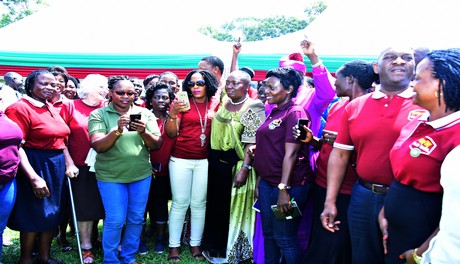In many respects, Ugandan women hold and have held rights that exceeded those of women in Western societies. Many Ugandans recognize women as important religious and community leaders. Women have held rights to own land, influence crucial political decisions made by men, and cultivate crops for their own profit.
We are all entitled to human rights. These include the right to live free from violence and discrimination; to enjoy the highest attainable standard of physical and mental health; to be educated; to vote; and to earn an equal wage.
However, Uganda Women Trust (UWT) links the lack of economic empowerment among women to the current development challenges such as gender-based violence; education (quality, access, dropout rates, retention), corruption, maternal mortality among others.
UWT has three approaches to women’s economic empowerment:
1. Building capacity of the women in agriculture for both household food security and household income, by working with women farmer groups. We train then in agriculture education, provide some inputs and link them to relevant services like agriculture training centres, and marketing groups.
2. Building entrepreneurship skills among the women and encouraging the women to work in groups so as to save and be loanable. We do this by training the women in entrepreneurship skills and encourage them to save as a group then we train them on how to manage their savings and lending activities.
3. Enhancing adult learning and skills development so that the women are able to negotiate, participate and make informed decisions in all aspects of their social, political and economic lives. We do know that low levels of education is the major hindrance to empowerment of women and therefore we use participatory methods to enhance literacy levels among the women so that they are able to engage in their businesses and also make decisions that benefit their families.
In all these UWT works closely with likeminded organizations for building coalition for advocacy, capacity building and lobbying for certain policy change. UWT also identifies key policy and cultural issues that affect the economic empowerment of women and engages key stakeholders to advocate for gender friendly policies.
Good practice policies and initiatives on gender equality;
Uganda Women Trust (UWT) links the lack of economic empowerment among women to the current development challenges such as gender-based violence; education (quality, access, dropout rates, retention), corruption, maternal mortality among others.
The Writer is passionate about Human Rights, economic justice, women inclusion and Human Rights.

















